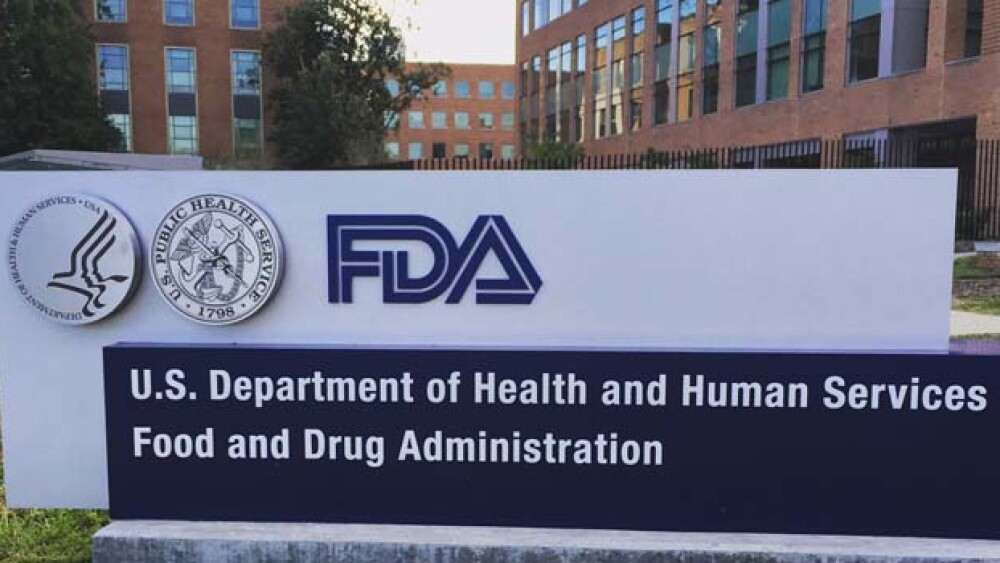The FDA granted Priority Review status to Gilotrif in evaluating this application.
- Approval expands the use of Gilotrif® (afatinib) for non-resistant EGFR mutations
|
| [16-January-2018] |
| RIDGEFIELD, Conn., Jan. 16, 2018 /PRNewswire/ -- Boehringer Ingelheim today announced that the U.S. Food and Drug Administration (FDA) has approved a supplemental New Drug Application (sNDA) for Gilotrif® (afatinib) for the first-line treatment of patients with metastatic non-small cell lung cancer (NSCLC) whose tumors have non-resistant epidermal growth factor receptor (EGFR) mutations as detected by an FDA-approved test. The new label includes data on three additional EGFR mutations: L861Q, G719X and S768I. The FDA granted Priority Review status to Gilotrif in evaluating this application. Gilotrif, an oral, once-daily tablet, was previously approved in the U.S. for the first-line treatment of patients with NSCLC whose tumors have EGFR exon 19 deletions or exon 21 L858R mutations. In addition, Gilotrif is approved in the U.S. for patients with squamous cell carcinoma of the lung whose disease has progressed after treatment with platinum-based chemotherapy. "With this expanded indication for Gilotrif, NSCLC patients whose tumors have certain EGFR mutations now have an approved therapy that specifically targets these mutations," said Sabine Luik, M.D., senior vice president of Medicine & Regulatory Affairs, Boehringer Ingelheim Pharmaceuticals, Inc. "This approval is a result of our company's commitment to delivering meaningful treatment advances in areas with high unmet medical need and reflects the tireless efforts of physicians, researchers and patients who participated in our studies." The sNDA approval is based on a pooled analysis of three studies from the LUX-Lung clinical trial program (Phase II LUX-Lung 2 study and Phase III studies LUX-Lung 3 and LUX-Lung 6) that examined Gilotrif in NSCLC patients whose tumors have EGFR mutations, including L861Q, G719X or S768I. This analysis showed that Gilotrif was active in these EGFR mutations based on objective response rate, duration of response, disease control, progression-free survival and overall survival. "Compared with other EGFR mutations, L861Q, G719X or S768I substitution mutations are associated with a poorer prognosis and limited treatment options," said Edward Kim, M.D., Levine Cancer Institute, Carolinas HealthCare System. "The approval of Gilotrif as a targeted therapy for these additional non-resistant EGFR mutations significantly alters the treatment strategy for this population." To determine if a patient is eligible for Gilotrif, physicians must conduct a test for genetic mutations - also known as biomarker testing - to determine the type of EGFR mutation present. "This approval is more welcome news for our lung cancer community," said Laurie Fenton Ambrose, president and CEO of Lung Cancer Alliance. "These types of advances are helping expand access to treatment options for patients who might benefit from targeted therapies to fight their specific type of lung cancer." About NSCLC Non-small cell lung cancer (NSCLC) is the most common form of lung cancer. In some people, genetic mutations lead to the constant activation of the epidermal growth factor receptor (EGFR) protein, which is associated with uncontrolled cell division and the development and progression of NSCLC. Most cases of EGFR mutation-positive NSCLC are attributed to the two most common EGFR mutations (exon 19 deletions or L858R). Approximately 10 percent of NSCLC patients with EGFR mutations have rare or uncommon mutations, and have had limited treatment options available to them. What is Gilotrif? Gilotrif is a prescription medicine that is used to treat people with non-small cell lung cancer (NSCLC) that:
It is not known if Gilotrif is safe and effective in treating people with lung cancer that has resistant abnormal EGFR genes. or is used to treat people with squamous cell lung cancer that:
It is not known if Gilotrif is safe and effective in children. IMPORTANT SAFETY INFORMATION ABOUT GILOTRIF Before you take Gilotrif, tell your doctor if you:
Tell your doctor about all the medicines you take, including prescription and over-the-counter medicines, vitamins, and herbal supplements. Gilotrif may affect the way other medicines work, and other medicines may affect the way Gilotrif works. What to avoid while taking Gilotrif Limit your time in the sun. Gilotrif can make your skin sensitive to the sun. You could get or have worsening rash or acne. You could get a severe sunburn. Use sunscreen and wear a hat and clothes that cover your skin while you are taking Gilotrif if you have to be in sunlight.
The most common side effects of Gilotrif include diarrhea, rash, mouth sores, nail inflammation, dry skin, acne, decreased appetite, nausea, vomiting, itching. Gilotrif may cause decreased fertility in females and males. Talk to your doctor if you have concerns about your fertility. Tell your doctor if you have any side effect that bothers you or that does not go away. These are not all of the possible side effects of Gilotrif. For more information, ask your doctor or pharmacist. Call your doctor for medical advice about side effects. You are encouraged to report negative side effects of prescription drugs to the FDA. Visit www.fda.gov/medwatch or call 1-800-FDA-1088. Please see Prescribing Information and Patient Information. GF CONS ISI 01.12.18 About Boehringer Ingelheim in Oncology About Boehringer Ingelheim Pharmaceuticals, Inc. Boehringer Ingelheim is one of the world's 20 leading pharmaceutical companies. Headquartered in Ingelheim, Germany, the company operates globally with 145 affiliates and about 50,000 employees. Since its founding in 1885, the family-owned company has been committed to researching, developing, manufacturing and marketing novel treatments for human and veterinary medicine. Boehringer Ingelheim is committed to improving lives and providing valuable services and support to patients and their families. Our employees create and engage in programs that strengthen our communities. To learn more about how we make more health for more people, visit our Corporate Social Responsibility Report. In 2016, Boehringer Ingelheim achieved net sales of about $17.6 billion (15.9 billion euros). R&D expenditure corresponds to 19.6 percent of its net sales. For more information please visit https://www.boehringer-ingelheim.us, or follow us on Twitter @BoehringerUS. Further Media Channels View original content with multimedia:http://www.prnewswire.com/news-releases/fda-approves-new-indication-for-gilotrif-in-egfr-mutation-positive-nsclc-300582548.html SOURCE Boehringer Ingelheim Pharmaceuticals |





